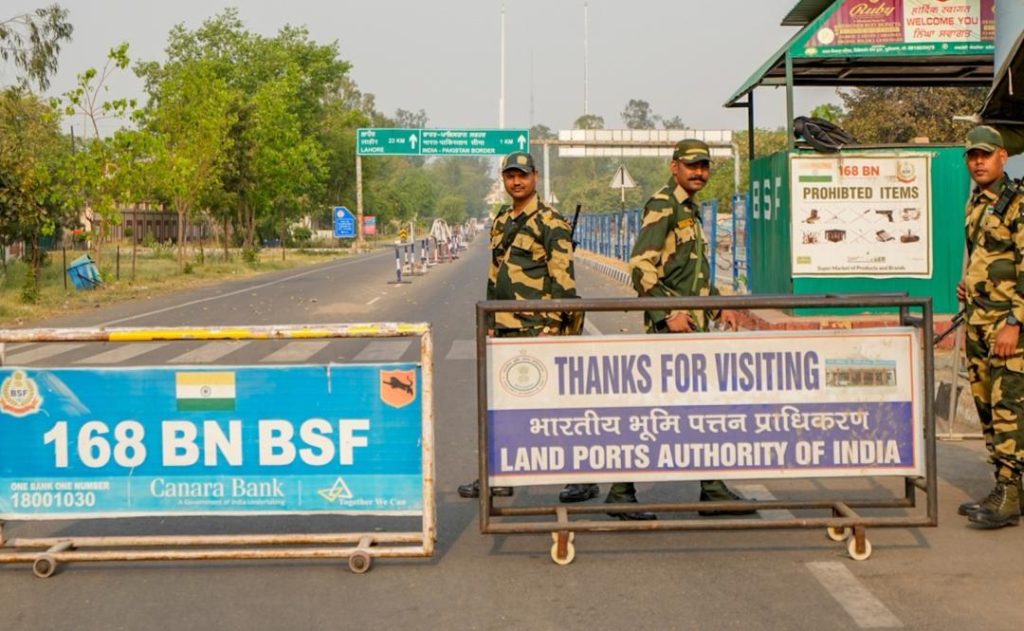
Attari-Wagah Border Between India & Pakistan Completely Closed
In a significant development, the Attari-Wagah border between India and Pakistan has been completely closed, according to reports by PTI on Thursday. The border, which is one of the most heavily guarded and iconic border crossings in the world, has been shut down, with no person from either side allowed to cross over to the other side.
This move comes as a response to the growing tensions between the two countries following a recent terror attack in Pahalgam, Jammu and Kashmir, which claimed the lives of 26 tourists. The attack, which was carried out by Pakistani militants, has sparked widespread outrage and condemnation across India.
In the aftermath of the attack, India had begun deporting Pakistani nationals who were found to be involved in illegal activities or had crossed the border illegally. However, Pakistan has now shut down the border and stopped accepting these deportees, leading to the complete closure of the Attari-Wagah border.
The closure of the border is a significant development, as it has been a major point of entry and exit for thousands of people who work, study, or visit each other’s countries. The border crossing has been a symbol of the complex and often tumultuous relationship between India and Pakistan, with both countries having a long history of conflict and tension.
The Attari-Wagah border is a unique and fascinating place, with a daily flag-lowering ceremony that attracts thousands of spectators from both sides. The ceremony, which has been going on for over four decades, is a symbol of the ongoing peace process between India and Pakistan, despite the many challenges and obstacles that the two countries have faced.
However, the recent closure of the border is a stark reminder of the fragility of the relationship between India and Pakistan. The Pahalgam terror attack has caused widespread anger and outrage in India, with many calling for stronger action to be taken against Pakistan to prevent such attacks in the future.
Pakistan, on the other hand, has denied any involvement in the attack, and has accused India of using the incident to escalate tensions and divert attention from its own internal issues. The Pakistani government has also criticized India for its handling of the situation, saying that it has not taken sufficient steps to address the root causes of terrorism in the region.
The closure of the Attari-Wagah border is likely to have significant economic and social impacts on both countries. Many people who rely on the border crossing for their livelihoods, including traders, students, and workers, are likely to be affected by the closure.
In addition, the closure of the border may also impact the flow of goods and services between the two countries, which could have long-term consequences for the regional economy. The border crossing is a vital artery for trade and commerce between India and Pakistan, with millions of dollars worth of goods and services being exchanged every year.
The closure of the Attari-Wagah border is also likely to have significant political implications for both countries. The incident has already sparked widespread outrage and condemnation across India, with many calling for stronger action to be taken against Pakistan.
Pakistan, on the other hand, is likely to feel the pressure of international isolation and economic sanctions, which could have significant consequences for its economy and people. The incident has also sparked concerns about the stability of the region, with many worrying about the potential for further conflict and violence.
In conclusion, the closure of the Attari-Wagah border is a significant development that highlights the complex and often tumultuous relationship between India and Pakistan. The incident is a stark reminder of the fragility of the peace process between the two countries, and the need for both sides to take concrete steps to address the root causes of terrorism and conflict in the region.
As the situation continues to unfold, it is clear that the closure of the border will have significant economic, social, and political implications for both countries. However, it is also an opportunity for India and Pakistan to reflect on their relationship and work towards a more peaceful and stable future for the region.






